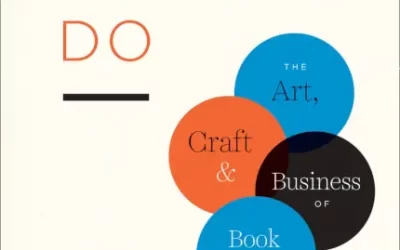Scholarly misconduct unfortunately seems to be on the rise in recent years. Paper mills are becoming more and more prevalent by the day. More than 8,000 papers were retracted by publisher Hindawi. Wiley’s newest AI paper detection software found that 10-13% of papers submitted to their various journals could potentially be from paper mills. Other journals have had articles retracted for poorly designed AI-generated images. And of course, numerous manuscripts have been found to be written either completely or partially by chatbots. Journals and publishers have been feeling the heat as they try their best to use new tools and software to police the growing ethics violations, but should they be shouldering all the blame?

Journals and publishers lose quite a bit when they publish papers with misconduct allegations. Journals can see their impact factor go down, which will impact their overall number of citations. Submission numbers can go down, affecting their reputation (not to mention their financial bottom line), and they can be added to restricted lists by national funders. The stakes are high, but even with new AI technology designed to detect fraud and misconduct, most publishers don’t have the manpower to sniff out every potential paper with issues. Most editors and reviewers are volunteers and don’t have the bandwidth to investigate widespread misconduct.
Some experts are pushing for institutions and research funders to take a more active role in rooting out potential misconduct. Scholarly societies are asking that many of the institutions implement the same AI detection software within their research facilities. Angela Cochran of the Scholarly Kitchen argues, “Might there be a middle ground? The technology tools could be available to individual authors that then have to get the validation and submit it with their paper. This will come with a fee.”
Within this same vein of cooperation, in 2021 and 2022, three major American universities led a series of virtual meetings on ethics issues among journal officials, editors, and research integrity officers (RIOs) to come up with plans for future collaboration between journals and research institutions to deal with the increasing misconduct violations in scholarly publishing. The meeting series identified three important changes to implement for future collaborations: “(1) reconsideration and broadening of the interpretation by institutions of the need-to-know criteria in federal regulations (ie, confidential or sensitive information and data are not disclosed unless there is a need for an individual to know the facts to perform specific jobs or functions), (2) uncoupling the evaluation of the accuracy and validity of research data from the determination of culpability and intent of the individuals involved, and (3) initiating a widespread change for the policies of journals and publishers regarding the timing and appropriateness for contacting institutions, either before or concurrently under certain conditions, when contacting the authors.” The group warned against confidentiality clauses and agreements and instead asked for more transparency between research institutions and publishers to allow for quick and clean resolution of data integrity issues.
Should publishers and journals remain the primary policing agent of data integrity issues, or should institutions oversee identifying potential misconduct by their researchers? Or should both agents be equally responsible with a greater push for openness and collaboration? Let us know in the comments!
By: Chris Moffitt
Chris is a Managing Editor at Technica Editorial




